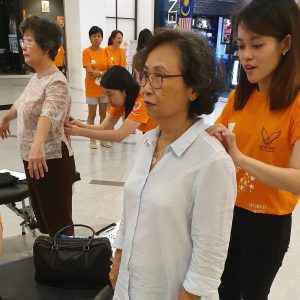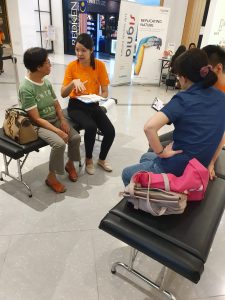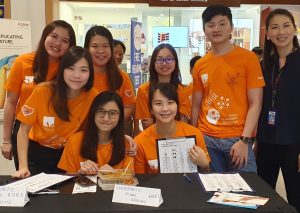[fusion_builder_container hundred_percent=”no” equal_height_columns=”no” menu_anchor=”” hide_on_mobile=”small-visibility,medium-visibility,large-visibility” class=”” id=”” background_color=”” background_image=”” background_position=”center center” background_repeat=”no-repeat” fade=”no” background_parallax=”none” parallax_speed=”0.3″ video_mp4=”” video_webm=”” video_ogv=”” video_url=”” video_aspect_ratio=”16:9″ video_loop=”yes” video_mute=”yes” overlay_color=”” overlay_opacity=”0.5″ video_preview_image=”” border_size=”” border_color=”” border_style=”solid” padding_top=”” padding_bottom=”” padding_left=”” padding_right=””][fusion_builder_row][fusion_builder_column type=”1_1″ layout=”1_1″ background_position=”left top” background_color=”” border_size=”” border_color=”” border_style=”solid” border_position=”all” spacing=”yes” background_image=”” background_repeat=”no-repeat” padding=”” margin_top=”0px” margin_bottom=”0px” class=”” id=”” animation_type=”” animation_speed=”0.3″ animation_direction=”left” hide_on_mobile=”small-visibility,medium-visibility,large-visibility” center_content=”no” last=”no” min_height=”” hover_type=”none” link=””][fusion_text] September is the World Alzheimer’s Month. This marks the eighth World Alzheimer’s Month and aims to get people talking more comfortably and openly about Alzheimer’s disease and dementia, the warning signs, risk reduction, who to speak to and where to go for advice and what we can do to help those living with the disease. Living with dementia is a challenging experience; the social prejudice that is associated with the condition only adds to this challenge, leaving many people with dementia and carers feeling isolated and stigmatised. Today, 2 of 3 people have little or no understanding of dementia. The stigma that surrounds dementia and misinformation remains a global issue. In conjunction with World Alzheimer’s month 2019, IMU Cares is involved in a campaign: “Let’s Talk About Dementia” organised by Alzheimer’s Disease Foundation Malaysia and Rotary Club of Shah Alam at the Atria Shopping Gallery, Damansara Jaya on 28 and 29 September 2019. IMU Cares’ involvement in this event included providing community services such as spinal screening, dental screening and more.  The team for spinal screening involved 28 final year Chiropractic students lead by a Chiropractic Senior Lecturer, Dr Janice Chan Vey Lian and we provided spinal health check for those with Alzheimer’s Disease and their caregivers. Throughout these two days, we screened more than 100 participants varying from adolescents to geriatrics, and mainly the area of complaints is at the low back. Simple advice on activities of daily living were given to the participants according to the musculoskeletal symptoms. We also educated participants on postural hygiene: the correct way to lift an object, how to change position in bed, instruction about the patient’s gait which may help to decrease pain, especially in patients who have low back pain.
The team for spinal screening involved 28 final year Chiropractic students lead by a Chiropractic Senior Lecturer, Dr Janice Chan Vey Lian and we provided spinal health check for those with Alzheimer’s Disease and their caregivers. Throughout these two days, we screened more than 100 participants varying from adolescents to geriatrics, and mainly the area of complaints is at the low back. Simple advice on activities of daily living were given to the participants according to the musculoskeletal symptoms. We also educated participants on postural hygiene: the correct way to lift an object, how to change position in bed, instruction about the patient’s gait which may help to decrease pain, especially in patients who have low back pain.  Chiropractic adjustments are designed to release pressure on the back and other joints which can relieve pain allowing the body to heal. It can improve and restore the motion and function of the body. Chiropractic adjustments are safe when performed by a trained chiropractic practitioner, although some people may experience mild soreness or discomfort following treatment which is normal. There are many dysfunctions which develop during dementia, concerning such aspects as: musculoskeletal, mobility and pain. The most common musculoskeletal disorders for elderly and dementia are osteoarthritis, muscle weakness and fractures of bones, which is why it is important to have good spinal health and exercises for the musculoskeletal system in patients with dementia. Mobility disorders are associated with physical symptoms such as: rigidity, balance problems, and a shuffling gait. Those problems can lead to difficulties when transfer of the body is concerned, such as: from lying down to sitting up and from being seated to standing up. The body’s balance and coordination can be improved by chiropractors and physical therapists which can then provide the patient a better sense of their surroundings and environment in everyday life. Patients may also then improve their mobility and independence which can play an important role in their mental well-being and lessen any burdens on their families to live an easier life.
Chiropractic adjustments are designed to release pressure on the back and other joints which can relieve pain allowing the body to heal. It can improve and restore the motion and function of the body. Chiropractic adjustments are safe when performed by a trained chiropractic practitioner, although some people may experience mild soreness or discomfort following treatment which is normal. There are many dysfunctions which develop during dementia, concerning such aspects as: musculoskeletal, mobility and pain. The most common musculoskeletal disorders for elderly and dementia are osteoarthritis, muscle weakness and fractures of bones, which is why it is important to have good spinal health and exercises for the musculoskeletal system in patients with dementia. Mobility disorders are associated with physical symptoms such as: rigidity, balance problems, and a shuffling gait. Those problems can lead to difficulties when transfer of the body is concerned, such as: from lying down to sitting up and from being seated to standing up. The body’s balance and coordination can be improved by chiropractors and physical therapists which can then provide the patient a better sense of their surroundings and environment in everyday life. Patients may also then improve their mobility and independence which can play an important role in their mental well-being and lessen any burdens on their families to live an easier life.
“My grandmom had Alzheimer’s and I used to go to take her to a chiropractor for back pain and it used to help her relax and which resulted in calming her anxiety.” – Casey Loo, one of the Spinal Screening participants shared.
Meanwhile, several chair yoga exercise sessions, were conducted by Janet Wong and the team and is aimed for caregivers and persons with dementia, senior citizens and their families. Regular yoga practice helps people of all age groups including the elderly. For the seniors, regular yoga practice can play an important part in keeping them healthy, because it helps to reduce swelling in joints, increase joint mobility and strength, improve balance and stability. Chair yoga is safer and it specifically helps to improve physical function, behavioural and psychological symptoms such as depression, agitation and anxiety, quality of life, and sleep quality in dementia elderly.  Amongst the activities that took place, the key event was the Memory Walk. The walk is aimed to raise greater awareness of the issues that are faced by people with dementia, care, and remembering people living with dementia and share support to their caregivers.
Amongst the activities that took place, the key event was the Memory Walk. The walk is aimed to raise greater awareness of the issues that are faced by people with dementia, care, and remembering people living with dementia and share support to their caregivers.  Personally, I appreciate this fruitful experience. This event was a new learning experience for me and indeed, I felt proud to know of the initiatives done to help to improve the experiences of people living with dementia and reduce stigmatisation as a chiropractic student and a future healthcare provider. All in all, it was a very successful event and it humbles me to know about Atria ADFM Community Corner (AACC), which is a joint community initiative with Atria Shopping Gallery (Atria) and ADFM that runs health, wellbeing and nutrition talks, elderly yoga session, caregivers sharing session, conducted with the support of doctors, specialist speakers, practitioners and facilitators in their respective fields on a volunteer basis. Written by Nion Tan Zhi Hui, IMU Chiropractic student Reviewed by Dr Janice Chan Vey Lian, Senior Lecturer, Chiropractic Department, Centre for Complementary and Alternative Medicine (CCAM) [/fusion_text][fusion_table]
Personally, I appreciate this fruitful experience. This event was a new learning experience for me and indeed, I felt proud to know of the initiatives done to help to improve the experiences of people living with dementia and reduce stigmatisation as a chiropractic student and a future healthcare provider. All in all, it was a very successful event and it humbles me to know about Atria ADFM Community Corner (AACC), which is a joint community initiative with Atria Shopping Gallery (Atria) and ADFM that runs health, wellbeing and nutrition talks, elderly yoga session, caregivers sharing session, conducted with the support of doctors, specialist speakers, practitioners and facilitators in their respective fields on a volunteer basis. Written by Nion Tan Zhi Hui, IMU Chiropractic student Reviewed by Dr Janice Chan Vey Lian, Senior Lecturer, Chiropractic Department, Centre for Complementary and Alternative Medicine (CCAM) [/fusion_text][fusion_table]
| Related article: |
|---|
| IMU Cares Team Collaborates with Alzheimer Disease Foundation Malaysia at its Forum on “Let’s Talk about Dementia” |
[/fusion_table][/fusion_builder_column][/fusion_builder_row][/fusion_builder_container]


No approved comments.